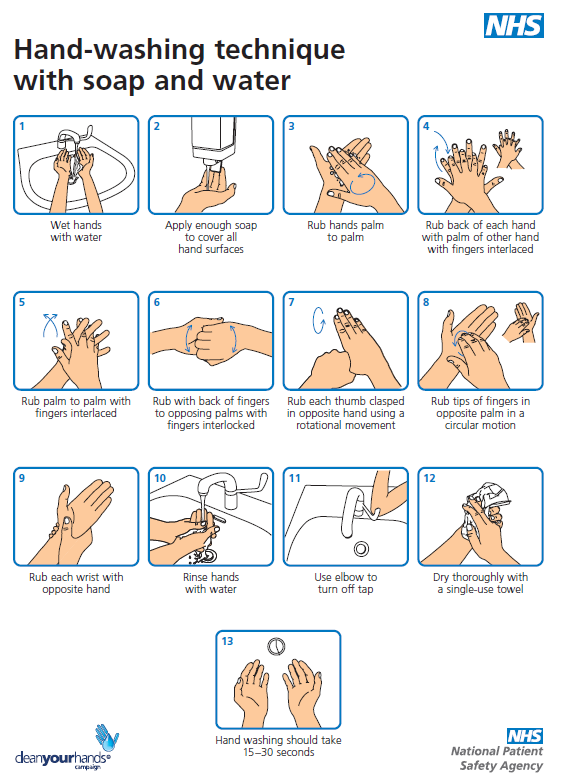28 September 2020
Everyone knows that washing your hands and good hand hygiene is something that we should all do as part of our daily routine. Everything we do from eating food to greeting other people introduces our hands to an unknown amount of bacteria and germs. Although this shouldn’t stop you from interacting with the world, in a commercial situation, the spread of these microbes should be minimized. Any bricks an mortar business, especially those in the food and hospitality industries, will need to ensure that their employees are maintaining a high level of hand hygiene. Here’s why it’s important to promote good hand hygiene and what can be done in a commercial setting.
Hand Washing Technique
The role that businesses take here is providing the correct facilities and keeping them; operational, sanitary and well stocked. A commercial building will be occupied with a number of people and hold a level of responsibility to ensure handwashing facilities meet with health and safety standards. Failing to prevent and minimising the spread of diseases and germs will have a serious impact on any business in both; staff going sick and reputation with customers – nobody wants to eat at a dirty restaurant or stay at a hotel with constant-coughing staff.
According to the NHS, these are the steps you should take every time you wash your hands:

The first step of achieving high quality health and safety standards is in the washrooms. Providing the facilities so both members of your team and members of the public can follow the steps above should be paramount to every business, regardless of the industry. This will include everything from soap dispensers and paper towel dispensers to hot air dryers and any additional washroom accessories that may be needed.
Proper Hand Washing in a Commercial Building
The UK’s Food Standard Agency provides a list of the times food handlers must wash their hands:
- when in the kitchen or preparation area
- before preparing food
- after touching raw food
- after handling food waste or emptying a bin
- after cleaning
- after blowing their nose
- after touching phones, light switches, door handles and cash registers
It also highlights the importance of staff drying their hands thoroughly because bacteria is able to spread on damp hands. It’s estimated that anywhere between 4% and 33% of all food born diseases outbreaks in the UK are from infected food handlers. According to a food safety report from the CDC in America, “only 1 in 4 observed workers washed their hands after preparing raw animal products or handling dirty equipment”. This highlights the importance of educating staff and keeping up the training for both correct food hygiene and handwashing technique. Although it’s not an exclusive food industry issue, a survey in 2019 showed that only 61% of office workers wash their hands after a bathroom break. This highlights that its not just busy kitchens that suffer from poor hygiene but it stretches across a range of industries and commercial buildings.
Hand Hygiene Products and Solutions
Regardless of the industry and the commercial building, correct hand hygiene products and equipment is a requirement. However, depending on the situation, different ranges of hygiene products and solutions will be needed. For example; an office won’t have much need for a handheld hair dryer but hotels and restaurants that want to achieve a more contactless washroom would be interested in an infrared soap dispenser. Evaluating the needs of those using the cleaning equipment and the availability of the space will give guidance over what can be installed.
The right hygiene products and training for all employees will help prevent the spread of bacteria and ensure everyone will be safe and healthy. To discuss any washing and cleaning supplies or installations your business may need, get in touch with our team today for a quote for how we can help you create a cleaner, safer environment.
